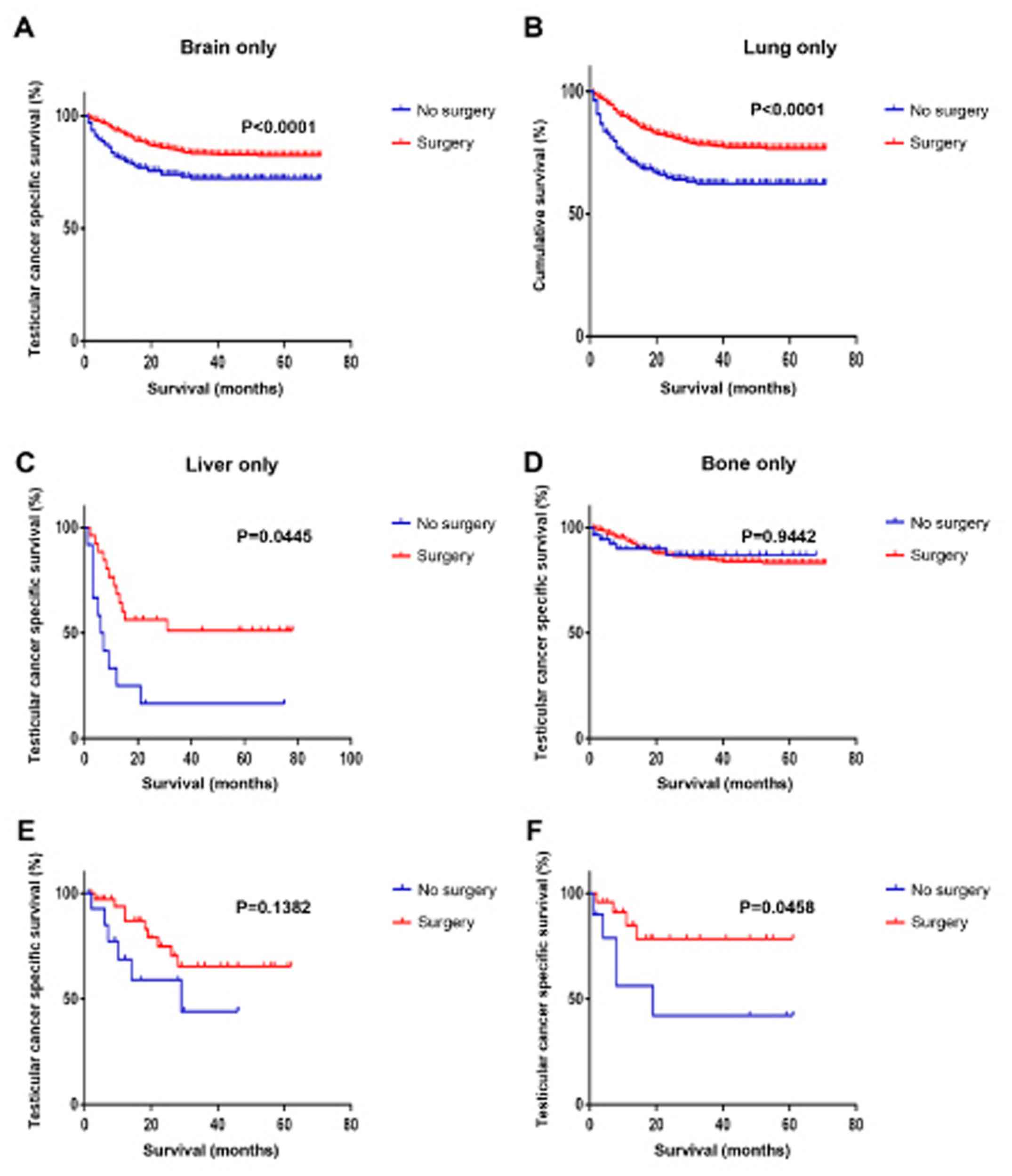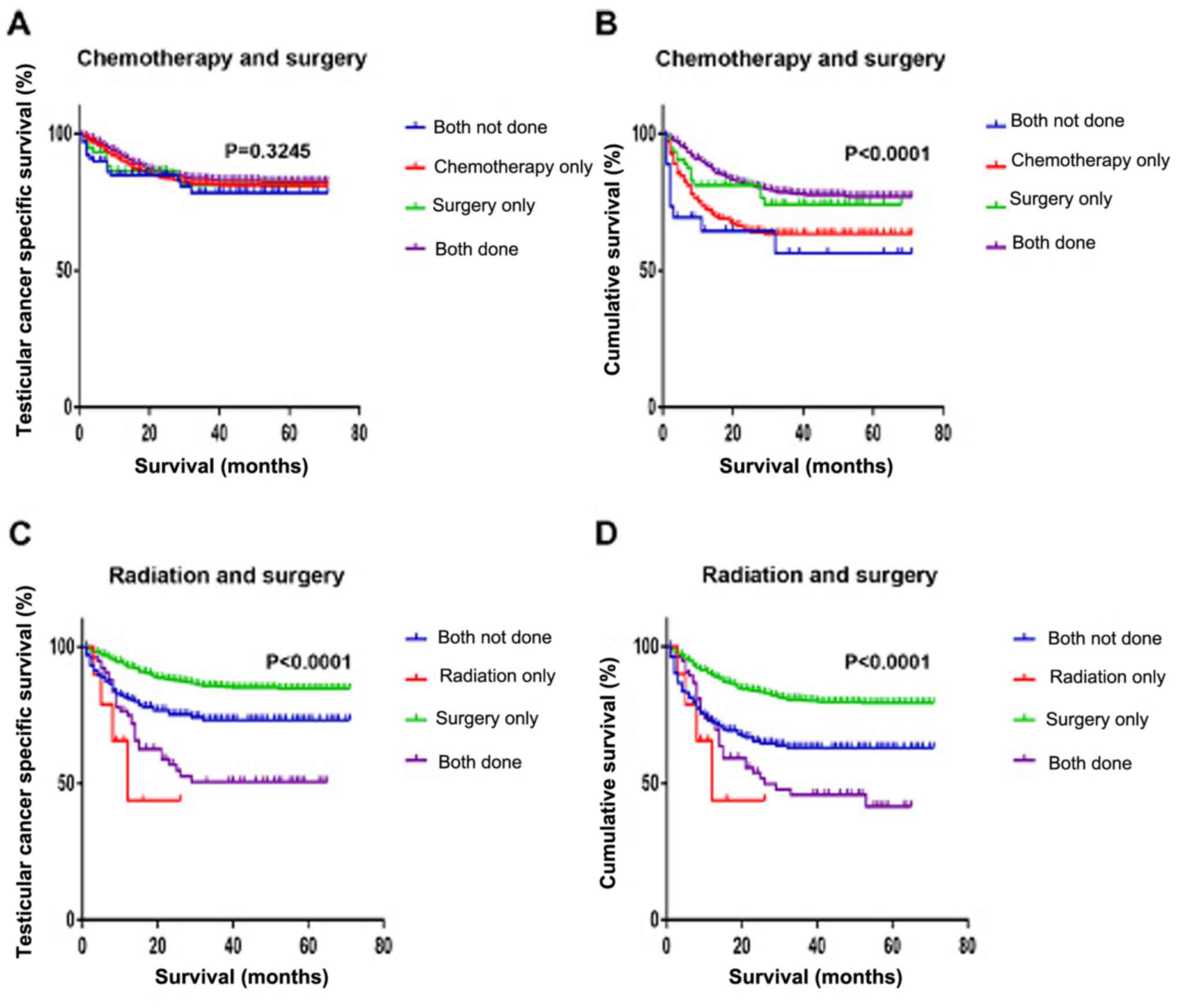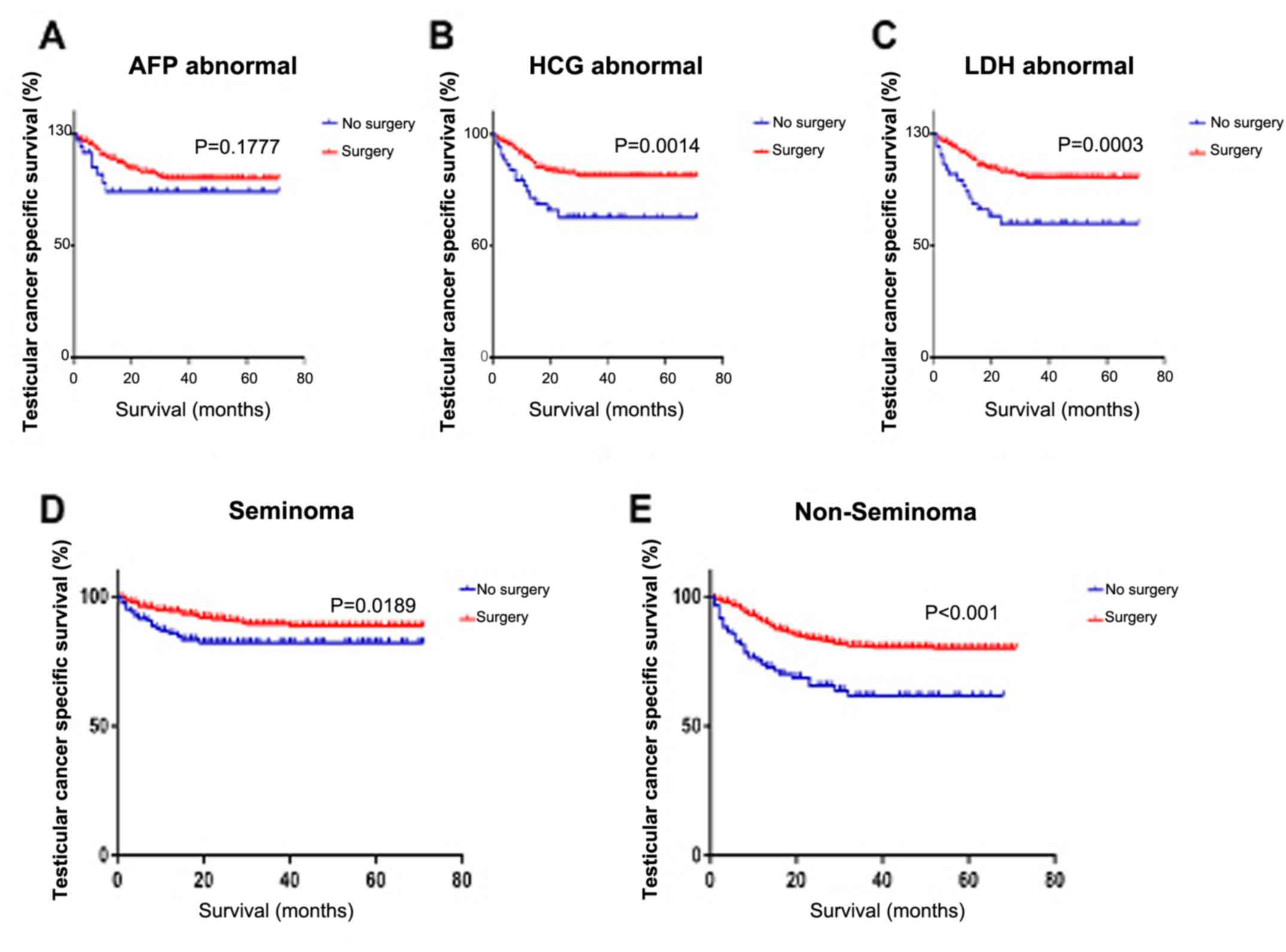|
1
|
International Agency for Research on
Cancer (IARC): Estimated number of new cases in 2018, testis,
males, all ages. https://gco.iarc.fr/today/online-analysis-table?v=2018&mode=population&mode_population=continents&population=900&populations=900&key=asr&sex=1&cancer=28&type=0&statistic=5&prevalence=0&population_group=0&ages_group%5B%5D=0&ages_group%5B%5D=17&group_cancer=1&include_nmsc=1&include_nmsc_other=1.
Accessed September 20, 2019.
|
|
2
|
Spiekermann M, Dieckmann KP, Balks T,
Bullerdiek J and Belge G: Is relative quantification dispensable
for the measurement of microRNAs as serum biomarkers in germ cell
tumors? Anticancer Res. 35:117–121. 2015.PubMed/NCBI
|
|
3
|
Hjelle LV, Gundersen PO, Oldenburg J,
Brydøy M, Tandstad T, Wilsgaard T, Fosså SD, Bremnes RM and Haugnes
HS: Long-term platinum retention after platinum-based chemotherapy
in testicular cancer survivors: A 20-year follow-up study.
Anticancer Res. 35:1619–1625. 2015.PubMed/NCBI
|
|
4
|
Burczynska BB, Kobrouly L, Butler SA,
Naase M and Iles RK: Novel insights into the expression of CGB1
& 2 genes by epithelial cancer cell lines secreting ectopic
free hCGβ. Anticancer Res. 34:2239–2248. 2014.PubMed/NCBI
|
|
5
|
Li X, Huang R, Ma L, Liu S and Zong X:
Locoregional surgical treatment improves the prognosis in primary
metastatic breast cancer patients with a single distant metastasis
except for brain metastasis. Breast. 45:104–112. 2019.PubMed/NCBI View Article : Google Scholar
|
|
6
|
Janssen-Heijnen ML, Gondos A, Bray F,
Hakulinen T, Brewster DH, Brenner H and Coebergh JW: Clinical
relevance of conditional survival of cancer patients in europe:
Age-specific analyses of 13 cancers. J Clin Oncol. 28:2520–2528.
2010.PubMed/NCBI View Article : Google Scholar
|
|
7
|
Verdecchia A, Francisci S, Brenner H,
Gatta G, Micheli A, Mangone L and Kunkler I: EUROCARE-4 Working
Group. Recent cancer survival in Europe: A 2000-02 period analysis
of EUROCARE-4 data. Lancet Oncol. 8:784–796. 2007.PubMed/NCBI View Article : Google Scholar
|
|
8
|
International Germ Cell Consensus
Classification. A prognostic factor-based staging system for
metastatic germ cell cancers. International Germ Cell Cancer
Collaborative Group. J Clin Oncol. 15:594–603. 1997.PubMed/NCBI View Article : Google Scholar
|
|
9
|
Baird DC, Meyers GJ and Hu JS: Testicular
cancer: Diagnosis and treatment. Am Fam Physician. 97:261–268.
2018.PubMed/NCBI
|
|
10
|
Goedert JJ, Purdue MP, McNeel TS, McGlynn
KA and Engels EA: Risk of germ cell tumors among men with
HIV/acquired immunodeficiency syndrome. Cancer Epidemiol Biomarkers
Prev. 16:1266–1269. 2007.PubMed/NCBI View Article : Google Scholar
|
|
11
|
Culine S, Kerbrat P, Kramar A, Théodore C,
Chevreau C, Geoffrois L, Bui NB, Pény J, Caty A, Delva R, et al:
Refining the optimal chemotherapy regimen for good-risk metastatic
nonseminomatous germ-cell tumors: A randomized trial of the
genito-urinary group of the french federation of cancer centers
(GETUG T93BP). Ann Oncol. 18:917–924. 2007.PubMed/NCBI View Article : Google Scholar
|
|
12
|
de Wit R, Roberts JT, Wilkinson PM, de
Mulder PH, Mead GM, Fosså SD, Cook P, de Prijck L, Stenning S and
Collette L: Equivalence of three or four cycles of bleomycin,
etoposide, and cisplatin chemotherapy and of a 3- or 5-day schedule
in good-prognosis germ cell cancer: A randomized study of the
European organization for research and treatment of cancer
genitourinary tract cancer cooperative group and the medical
research council. J Clin Oncol. 19:1629–1640. 2001.PubMed/NCBI View Article : Google Scholar
|
|
13
|
Fung C, Fossa SD, Milano MT, Sahasrabudhe
DM, Peterson DR and Travis LB: Cardiovascular disease mortality
after chemotherapy or surgery for testicular nonseminoma: A
population-based study. J Clin Oncol. 33:3105–3115. 2015.PubMed/NCBI View Article : Google Scholar
|
|
14
|
Fung C, Fossa SD, Williams A and Travis
LB: Long-term morbidity of testicular cancer treatment. Urol Clin
North Am. 42:393–408. 2015.PubMed/NCBI View Article : Google Scholar
|
|
15
|
Pfister D, Haidl F, Paffenholz P and
Heidenreich A: Metastatic surgery in testis cancer. Curr Opin Urol.
26:590–595. 2016.PubMed/NCBI View Article : Google Scholar
|
|
16
|
Paffenholz P, Pfister D and Heidenreich A:
Postchemotherapy residual tumour resection in complex metastatic
sites of advanced testicular germ cell tumours. Urologe A.
55:632–640. 2016.PubMed/NCBI View Article : Google Scholar : (In German).
|
|
17
|
Collis CH and Eckert H: Seminoma of the
testis with bone involvement: A report of three cases. Clin Radiol.
36:467–468. 1985.PubMed/NCBI View Article : Google Scholar
|
|
18
|
Dieckmann KP, Radtke A, Spiekermann M,
Balks T, Matthies C, Becker P, Ruf C, Oing C, Oechsle K, Bokemeyer
C, et al: Serum levels of microRNA miR-371a-3p: A sensitive and
specific new biomarker for germ cell tumours. Eur Urol. 71:213–220.
2017.PubMed/NCBI View Article : Google Scholar
|

















